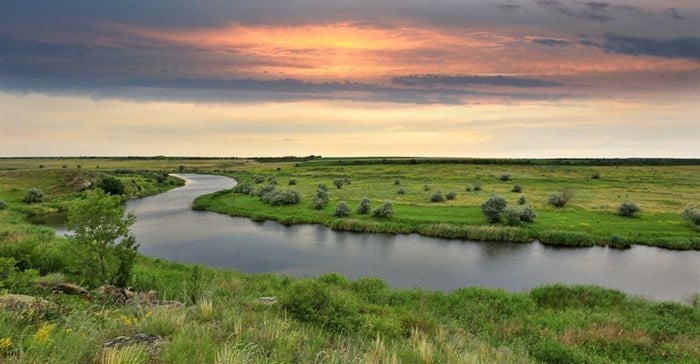WWF released a new report on Sunday, 26 August, highlighting the capacity of healthy rivers to help mitigate natural disasters such as flooding and droughts. It also warns that all these 'hidden' benefits of rivers could be lost if they continue to be undervalued and overlooked.
The Valuing Rivers report, released on the opening day of World Water Week in Stockholm, outlines how the traditionally narrow view of rivers as primarily sources of water and power puts other critical benefits at risk, from freshwater fisheries to natural flood protection for cities and sediment flows that keep the world’s deltas above the rising seas. While these directly benefit hundreds of millions of people, they are often overlooked and remain a low priority for decision makers – until they disappear and crises occur.
Potentially greater economic losses
The report shows how this short-sighted approach that has proven costly across the globe and could result in even greater economic losses in the future. Already, 19% of global GDP comes from watersheds with high or very high water risk, while most of the world’s great deltas – including the Ganges, Indus, Mekong, Nile and Yangtze – are sinking and shrinking.
“Collapsing fisheries and disappearing deltas are just two examples of the collateral damage caused by our failure to value rivers for all their diverse benefits – not just the water flowing down them,” said Stuart Orr, WWF Freshwater Practice lead. “We need to urgently transform the way we value and manage our rivers, or we risk undermining economies and global efforts to achieve the sustainable development goals.”
Along with their central role in many cultures and religions, the report shows that healthy rivers, particularly free-flowing rivers, provide a range of extremely valuable – and increasingly vulnerable – benefits to people across the planet:
- 2 billion people rely directly on rivers for their drinking water;
- 500 million people live on deltas that can only be sustained by sediment from rivers;
- 25% of the world’s food production depends on irrigation from rivers;
- At least 12 million tonnes of freshwater fish are caught each year, providing food and livelihoods for tens of millions of people.
With rivers under growing pressure from dam development, climate change and soaring demand for water to irrigate farms and fuel hydropower plants, the report provides a new framework for improving how societies measure, value and promote rivers’ diverse benefits and offers solutions to support better decisions and management.
Role of new technologies
It highlights the potential role of new technologies, such as artificial intelligence, remote sensing and blockchain, which offer a number of promising pathways to improve how we measure water and river systems. Improvements in methods for valuing water, quantifying ecosystem services, and evaluating tradeoffs also provide new opportunities. Finally, the report recommends the development of effective water-management institutions and governance – with roles for governments, companies and financial institutions – to ensure that the best overall decisions are taken and that progress is sustainable.
“Rivers are not just pipes for delivering water and we don’t have to accept the loss of rivers’ diverse benefits as the unavoidable collateral damage of development,” said Jeff Opperman, WWF global lead freshwater scientist and author of the report. “Emerging innovations, alongside existing solutions, now allow us to reconcile sustainable economic growth with healthy rivers.”
“This is not a zero-sum game: communities, companies and governments can – and must – help plot a better course that helps secure water for all while maintaining these critical lifelines for people and nature,” added Opperman.








































